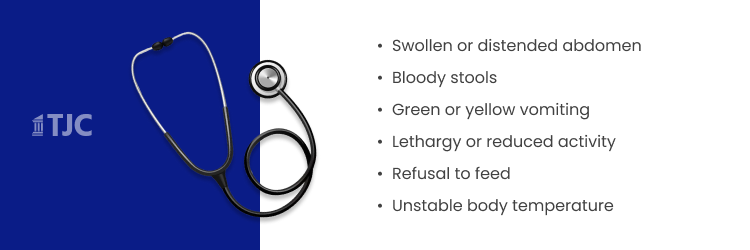Necrotizing enterocolitis (NEC) is a devastating gastrointestinal condition that primarily affects preterm infants and premature babies with low birth weight. The disease inflames and destroys intestinal tissue, often leading to severe complications or death.
The alarming part? NEC has been strongly linked to cow’s milk-based formulas like Similac infant formula and Enfamil, frequently used in neonatal intensive care units (NICUsaffected).
For years, families have sought justice and accountability. Now, with ongoing NEC baby formula lawsuits, parents are taking on baby formula manufacturers for failing to warn about the risks. High-profile cases have led to significant verdicts and settlements, sparking hope for affected families.
This comprehensive guide provides everything you need to know about the NEC baby formula trial, the science behind NEC, and how to get justice with the help of NEC baby formula lawyers.
Key Updates on the NEC Baby Formula Lawsuit
Ongoing: New NEC lawsuits filed monthly, reflecting continued legal activity and hope for affected families seeking justice and compensation.
November 2025: Final scheduled bellwether trial for 2025, expected to impact future NEC cases and settlements.
August 2025: Another bellwether trial scheduled to further shape the outcomes of NEC litigation.
May 2025: Scheduled bellwether trial to address NEC lawsuits and influence potential large-scale settlements.
December 2024: Over 625 active NEC cases consolidated in multidistrict litigation (MDL) in the Northern District of Illinois. This MDL streamlines the legal process for families affected by NEC.
July 2024: $495 million award against Abbott Laboratories, manufacturer of Similac, in another NEC-related case.
March 2024: $60 million judgment against Mead Johnson, manufacturer of Enfamil, in a case linking their baby formula to necrotizing enterocolitis (NEC).
What is NEC (Necrotizing Enterocolitis)?
Necrotizing enterocolitis (NEC) is a severe and often fatal gastrointestinal disease that primarily affects premature infants and those with low birth weight.
NEC causes inflammation in the intestines, leading to tissue death and, in some cases, intestinal wall perforation. When this occurs, harmful bacteria can leak into the abdomen and bloodstream, causing life-threatening infections.
Symptoms of NEC
Causes of NEC
NEC typically develops within the first two to six weeks of life. The exact cause is unclear, but risk factors include:
- Premature birth: Infants born before 37 weeks have underdeveloped digestive systems.
- Feeding with milk based baby formula: Premature infants are at higher risk when fed cow’s milk-based formula like Similac or Enfamil.
- Infection and inflammation: Bacteria in the intestines can trigger the inflammatory response leading to NEC.
Impact of NEC
The consequences of NEC can be devastating. Many infants require surgery to remove dead intestinal tissue. Complications may include:
- Short bowel syndrome: Reduced ability to absorb nutrients.
- Developmental delays: Cognitive and physical impairments.
- Chronic digestive problems: Lifelong need for specialized diets and medical care.
- Mortality: NEC has a fatality rate of up to 50% in severe cases.
Early diagnosis and intervention are critical, but many infants still suffer long-term consequences or do not survive.
How Baby Formula Is Linked to NEC
Research has shown a clear link between milk based baby formula and necrotizing enterocolitis (NEC) in premature infants. Despite the evidence, formulas like Similac and Enfamil are still widely used in NICUs.
Below are key studies and findings highlighting the risks and ongoing NEC lawsuits against baby formula manufacturers for failing to warn about these dangers adequately.
Key Studies Linking Baby Formula to NEC
1990 Lancet Study
A landmark study published in The Lancet found that premature infants fed cow’s milk-based formula were 6 to 10 times more likely to develop NEC compared to those who received human breast milk. This study highlighted the significant risk associated with formula feeding for vulnerable preterm infants and underscored the need for safer alternatives like breast milk.
NIH Study
Research published on NIH confirmed that premature infants who received milk based baby formula had a significantly higher risk of developing NEC compared to those fed human breast milk or donor milk. The findings emphasized that breast milk provides protective benefits that formula simply cannot replicate, reducing the incidence of NEC.
2021 Cochrane Review
A systematic review by Cochrane demonstrated that infants given donor human breast milk had a 58% lower risk of developing NEC than those fed cow’s milk-based formula. The review recommended prioritizing breast milk or donor milk for preterm infants to reduce the likelihood of NEC.
FDA, CDC, NIH Consensus Statement (2024)
In a joint statement released in October 2024, the FDA, CDC, and NIH emphasized that lacking human breast milk increases NEC risks in premature infants. The statement highlighted the dangers of using cow’s milk-based formulas in NICUs, reaffirming that breast milk or fortified human milk should be the standard of care for vulnerable infants.
Study in Frontiers in Pediatrics (2022)
A study published in Frontiers in Pediatrics found that infants who consumed cow’s milk-based formula were more prone to severe intestinal inflammation than those fed breast milk. The study linked the formula’s lack of essential bioactive components to higher rates of NEC.
Why Breast Milk is Protective
Human breast milk contains critical antibodies, enzymes, and nutrients that support immune function and promote the growth of healthy gut bacteria. These components help prevent harmful bacteria from colonizing the intestines, which can trigger NEC.
According to the American Academy of Pediatrics (AAP), breast milk also contains protective factors like immunoglobulin A (IgA) and oligosaccharides, which reduce inflammation and bolster the infant’s immune defenses.
In contrast, cow’s milk-based formula lacks these protective elements. It is harder for premature infants to digest, making their intestines more vulnerable to inflammation and bacterial infections.
The large protein molecules in the formula can damage the delicate intestinal lining, increasing the risk of NEC.
Also, formula-fed infants often have an imbalance of gut bacteria, which can lead to harmful bacterial overgrowth.
NEC Baby Formula Lawsuit Settlements
Families affected by NEC are seeking compensation through NEC baby formula lawsuits to address the extensive financial and emotional burdens caused by the condition.
These lawsuits aim to recover costs related to medical treatments, long-term care, and the pain and suffering endured by both the child and their family. Given the severe impact of NEC, compensation can be substantial, reflecting the damages incurred.
Typical Payout Ranges for NEC Lawsuits
The payout families can expect in NEC baby formula lawsuits varies widely based on the circumstances of each case. Here are the typical settlement ranges based on the severity of the injury:
Mild Cases:
Payout Range: $50,000 to $100,000
These cases involve NEC, which is diagnosed early and treated successfully, often without surgery. While the infant may recover fully, families still incur costs for hospitalization, medications, and follow-up care.
Compensation covers these expenses and accounts for emotional distress and temporary disruption to the family’s life.
Severe Cases:
Payout Range: $250,000 to $500,000
Severe cases require intensive medical intervention, such as surgery to remove damaged intestinal tissue, prolonged NICU stays, and ongoing medical care. Infants may suffer long-term complications like short bowel syndrome or developmental delays.
Settlements reflect these extended medical costs, potential future care needs, and the emotional toll on the family.
Fatal Cases:
Payout Range: $1 million or more
In cases where NEC results in the death of the infant, compensation can exceed $1 million. These payouts cover funeral and burial expenses, loss of potential future earnings, and the profound emotional suffering and loss experienced by the family.
Wrongful death claims seek to acknowledge the irreplaceable loss and provide financial stability for the grieving family.
Variables Affecting Compensation
Several factors influence the amount of compensation awarded in NEC baby formula lawsuits. These variables ensure that settlements reflect the specific damages and hardships endured by each family. Key factors include:
Severity of the Injury
The extent of the NEC diagnosis plays a crucial role in determining compensation. Infants who experience mild NEC with minimal medical intervention typically receive lower payouts.
In contrast, severe cases requiring surgeries, long-term hospitalization, or resulting in permanent disabilities warrant higher compensation. The more extensive and invasive the medical treatments, the higher the potential payout.
Medical Expenses
Compensation considers both past and future medical costs. This includes hospital stays, NICU care, surgeries, medications, and ongoing therapies.
For infants with long-term complications, expenses for specialized care, medical equipment, and regular follow-ups are factored into the settlement. These costs can quickly accumulate, sometimes reaching hundreds of thousands of dollars.
Impact On Quality of Life
For infants who survive NEC but suffer from lasting complications, compensation addresses the lifelong impact on their quality of life. Conditions like short bowel syndrome or developmental delays may require continuous care.
Ultimately, these conditions impact the family’s ability to work or live a normal life. These factors increase the payout to ensure the child receives the necessary support and care.
Emotional Distress, Pain, and Suffering
The emotional trauma experienced by the child and their family is a significant factor. Families often endure immense stress, anxiety, and grief. Compensation for pain and suffering aims to acknowledge this emotional toll, especially in cases involving permanent disabilities or loss of life.
Legal Precedents
Previous verdicts and settlements significantly shape current NEC baby formula lawsuits. High-profile cases have set benchmarks for compensation and established legal standards for holding baby formula manufacturers accountable.
These precedents provide a basis for future settlements and help ensure that families affected by NEC receive the justice and compensation they deserve.
As these cases continue to unfold, they reinforce the importance of legal action in addressing the risks posed by milk based baby formula.
Evidence of Negligence
Strong evidence showing that manufacturers knew about the risks of milk based baby formula and failed to warn consumers can increase compensation. Internal documents, expert testimonies, and medical records are crucial in proving negligence and securing higher payouts.
How to File an NEC Baby Formula Lawsuit
If your child developed NEC after consuming milk based baby formula, you may be eligible to file a lawsuit. Taking legal action can help you seek compensation and justice.
Who Qualifies
Parents of Infants Diagnosed with NEC
If your child was diagnosed with NEC after being fed cow’s milk-based formula like Similac or Enfamil in a hospital or neonatal intensive care unit (NICU), you may qualify to file a lawsuit. This diagnosis must be confirmed by medical professionals and linked to formula use.
Premature Birth or Low Birth Weight
The infants involved in these cases are typically born before 37 weeks of gestation or weigh less than 5.5 pounds at birth. These babies have underdeveloped digestive systems, making them more susceptible to NEC when exposed to milk based baby formula.
Key Requirements:
Medical Records
You will need detailed documentation of your child’s NEC diagnosis, treatment plans, and any surgeries or hospital stays. These records should clearly show the timeline of the diagnosis and how it coincided with formula feeding.
Proof of Formula Use
It is critical to have evidence that your child consumed Similac or
Enfamil. This can come from hospital feeding logs, NICU records, or receipts for purchased formulas. Clear documentation helps establish the link between the formula and the NEC diagnosis.
Legal Representation
Working with experienced NEC baby formula lawyers who specialize in these cases is essential. These lawyers understand the complexities of infant formula NEC lawsuits. They can help you navigate the legal process, ensuring all requirements are met, and your case is as strong as possible.
Filing Process
1. Initial Consultation
The first step is to schedule a consultation with a qualified lawyer. During this meeting, you will discuss your case, including your child’s diagnosis, feeding history, and potential evidence. The lawyer will evaluate the merits of your claim and explain the legal process in detail.
2. Evidence Collection
Your lawyer will help gather all necessary documentation, such as medical records, hospital feeding logs, and expert testimonies. Expert witnesses, such as pediatricians or neonatologists, may be consulted to strengthen your case by providing insights into how milk-based baby formula contributed to your child’s NEC.
3. Lawsuit Filling
Once the evidence is compiled, your lawyer will formally file the lawsuit in the appropriate court. They will handle all legal filings, communications with opposing parties, and procedural requirements. Your lawyer will keep you informed throughout the process and advocate for your rights.
Baby Formula Lawsuit FAQs
How Much Does It Cost to File an NEC Formula Lawsuit?
Filing an NEC formula lawsuit typically involves no upfront costs for parents. Most NEC baby formula lawyers operate on a contingency fee basis, meaning you only pay legal fees if your case results in compensation.
This arrangement allows families to pursue justice without worrying about the financial burden of legal costs during an already challenging time.
If your lawyer wins a settlement or verdict, the legal fees are taken as a percentage of the compensation awarded. Typically, this fee ranges from 25% to 40%, depending on the case’s complexity.
This system ensures that legal representation is accessible to all families, regardless of financial status, while incentivizing lawyers to work diligently to secure maximum compensation.
Are Necrotizing Enterocolitis (NEC) Baby Formula Lawsuits a Class Action Lawsuit?
NEC baby formula lawsuits are not class action lawsuits. Instead, they are part of a multidistrict litigation (MDL) process. In an MDL, individual cases with similar claims are grouped together to streamline pretrial proceedings. This approach increases efficiency, allowing evidence and testimonies to be coordinated while still treating each plaintiff’s case individually.
Unlike class actions, where a single judgment applies to all plaintiffs, each NEC case in an MDL is judged separately based on its merits. This means compensation is awarded according to the specifics of each case.
Families benefit from the efficiency of collective proceedings but retain the right to pursue personalized compensation based on their unique circumstances.
Have Enfamil and Similac Formulas Been Recalled?
As of 2024, neither Enfamil nor Similac formulas have been recalled due to NEC-related risks. Despite mounting evidence linking these formulas to NEC in premature infants, manufacturers have not issued recalls.
However, the lack of recall does not mean these formulas are entirely risk-free for preterm infants and those with low birth weight.
In 2022, both Enfamil and Similac were recalled for unrelated issues, specifically for potential bacterial contamination, including Cronobacter sakazakii and Salmonella.
These recalls highlighted quality control concerns but did not address NEC risks. Parents of premature babies should remain cautious and consult healthcare providers regarding safer alternatives like human breast milk or donor milk.
Is Similac Okay to Use Now?
For full-term infants, Similac is generally considered safe and widely used. These babies have more developed digestive systems, making them less susceptible to complications like NEC.
Many pediatricians still recommend Similac for healthy infants who are not breastfed, as it meets nutritional standards and is readily available in the market.
However, for premature babies or those born with low birth weight, Similac and other cow’s milk-based formulas are linked to an increased risk of NEC.
In these cases, human breast milk or donor milk is strongly recommended. These alternatives provide protective nutrients that reduce NEC risk, making them a safer option for vulnerable infants.
Conclusion
The NEC baby formula lawsuit centers on claims that baby formula manufacturers like Mead Johnson and Abbott Laboratories were irresponsible. The connection between milk based baby formula and necrotizing enterocolitis (NEC) in premature infants is well-documented through numerous studies. Yet, formulas like Similac and Enfamil continue to be used in neonatal care, exposing vulnerable babies to serious risks.
The ongoing NEC baby formula lawsuit cases aim to hold baby formula manufacturers accountable for failing to warn parents and healthcare providers about these dangers. If your child developed NEC after consuming cow’s milk-based formula, you may be eligible to pursue compensation through an NEC baby formula lawsuit.
It’s important to consult with experienced legal professionals who specialize in these cases to ensure you understand your rights and increase your chances of a successful outcome.
Disclaimer: The information provided in this article is for informational purposes only and does not constitute legal advice. Readers should consult with a licensed attorney for legal guidance regarding their specific situation. The content is not intended to create, and receipt of it does not constitute an attorney-client relationship.








